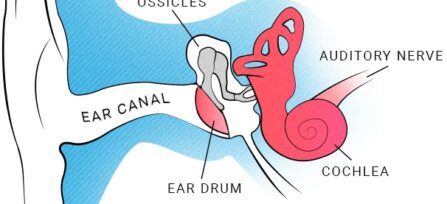Private Label Hearing Aids
When you buy a hearing aid, make sure you know what you're actually buying
When you buy a Kirkland Signature brand product from Costco, do you know what you're actually buying?
Or that "two buck chuck" from Trader Joes— do you know who the actual producer of the wine is?
Or how about when you buy an Amazon Basic product?
You probably have no idea what manufacturers are behind these products and more, and that's fine, because they're relatively inexpensive and unimportant purchases.
Private labeling of products like those mentioned above is harmless.
But when you buy hearing aids, we recommend steering clear of private labels.
What are private label hearing aids?
Private label hearing aids are hearing aids that are given a "private" brand name, separate from the brand name of the company that actually manufactured the hearing aid.
They're usually sold exclusively through franchised retail offices or a nationally supported network of hearing aid offices.
Here are some of the most popular private labeled hearing aid brands in the United States:
- Miracle Ear
- Beltone
- Audibel
- NuEar
- AGX
Hearing aids labeled with the above brand names are actually built by mainstream hearing aid manufacturers, such as Signia, ReSound, Starkey, and Oticon—the products are just given a different brand name.
Why is this done?
They're many reasons, and before you buy hearing aids, you should understand them.
Why are people selling private label hearing aids?
There's a lot of reasons that a hearing aid retailer may be selling private labeled hearing aids.
Most of them benefit the hearing aid provider, and not the consumer.
Name brand recognition
Imagine you're a hearing provider looking to establish a new hearing aid business.
Choosing to align yourself with a nationally recognized private label brand may earn you instant name recognition in your community.
Brand exclusivity
Private label hearing aid dealers to do not have to compete against other retailers of the same private label within their territory.
For example, if you start a hearing aid office and commit to selling a particular private label brand, another retailer will not be able to open a store within a reasonable distance and compete against you.
You become your community's sole source for that particular brand of hearing aids.
Price comparison protection
Unlike traditionally branded hearing aids which several providers in each community sell, private label hearing aids are uniquely named, ensuring customers cannot get apples to apples quotes from several hearing providers for the same hearing aid.
This makes it easier for private label hearing aid dealers to confidently price their hearing aids, knowing that their prices cannot be easily shopped.
Guaranteed recurring customer base
Not only can private label hearing aids only be sold by affiliated dealers of that brand, they can only be serviced by affiliated dealers as well.
This means that a hearing provider can be guaranteed they will be their customers' sole source of service for their hearing aids, increasing the odds of generating service-related revenue and future sales.
You can now see why it makes business sense for companies to sell private labeled hearing aids, but now let's talk about why it's usually not in the consumer's best interest.
The problem with buying private label hearing aids
There are several reasons why private label hearing aids are not be the best choice for consumers.
Not all the below points apply to all private label hearing aid brands or dealers, but they certainly provide a good starting point for discussions that should be had if you are considering purchasing a private label hearing aid.
Most private label hearing aids are "locked"
Locked hearing aids are hearing aids that can only be serviced by the store the sold them to you, or another store within that private labeled brand's network.
This can create problems if the dealer goes out of business, you relocate, or you simply wish to have your hearing aids serviced elsewhere.
No other hearing provider in your community will be able to repair, service, or program your private label hearing aids.
You are in essence, locked in with your hearing provider.
Read what one customer has to say about this (source):
Now that I am moving to a new city, I will have to find a new dealer - closest one is over 60 miles away - and pay for any cleaning or other usual and customary services for the units. I now have "buyer's remorse" and suggest anyone considering buying a [private label] aide ask about what happens to promises of continued support if you move to a new location and have to work with a different dealer.
Lack of price transparency
If there's only one dealer for a particular brand of hearing aid in your city, you aren't able to shop for competitive prices on that model.
And if that model has a private name so you can't easily research a fair price for it, you don't know what you should pay.
This makes it harder for you to know what you're actually buying, and to ensure you're getting a fair price for your hearing aids.
Dated technology
Some private label brands do not have access to the latest technology on the market.
The major manufacturers who build and supply hearing aids to private labeled brands will sometimes not release their newest technology to those brands until their traditional dealers have had exclusivity in the marketplace with it for a period of time.
Limited product selection
By and large, private label dealers only offer one brand of hearing aids, and some are required to sell that one brand exclusively.
Despite what some single-line hearing providers may feel, each hearing aid manufacturer has something unique to offer, and no single brand is the best at everything.
Just say "no" to private labels
You have so many other options to choose from, which don't come along with the inherent risks that private label hearing aids do.
So just say no.
And if you're favorite hearing provider only offers private labeled models, talk to them about your concerns, and see if they can make an exception and get you a hearing aid that isn't private labeled.






